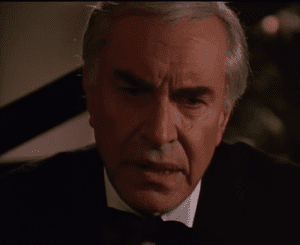“Nothing is covered up that will not be uncovered, and nothing secret that will not become known. Therefore whatever you have said in the dark will be heard in the light, and what you have whispered behind closed doors will be proclaimed from the housetops.” — Luke 12:2-3
The astonishing thing to me about the Dennis Hastert story — the part I can’t manage to wrap my mind around — is that knowing this about himself, knowing his own secret history, he still chose to run for office and to place himself in the public eye.
At some point you’ve probably sat with friends and had a half-joking conversation about the reasons why none of you could run for public office — the various skeletons in the closet, embarrassments, misdemeanors and mistakes we all accumulate throughout life. Some of those we can joke about as potential fodder for opposition research and negative campaign ads if we ever went into politics. Other things may be a bit more serious or substantial.

But most people realize that there are some things that would be utterly fatal to any political aspirations — mistakes or misdeeds that would simply disqualify anyone from seeking public office or withstanding public scrutiny. If you’re harboring the kind of dark secret for which you would be willing to pay millions of dollars to conceal or to compensate a victim, then running for public office just shouldn’t be an option you would ever consider. This isn’t the kind of thing some spinmeister can fix. Not the kind of thing that can be addressed in a press conference or a 60 Minutes interview and then laid to rest. This is the kind of career-ending debacle that will, if it comes to light, become the first sentence in your obituary — the shameful summary of your life.
So what was Dennis Hastert imagining would happen when he decided to run for office back in 1980? Maybe he thought a low-media, low-attention state legislature contest was somehow safe. But then he ran for national office in 1987, and then raised his profile even more by ascending through his party’s leadership in the House. When he put himself forward to become speaker of the House, he was following Newt Gingrich, who was then in an ethical cloud due to an extramarital affair. And he only was elected to the post after Rep. Bob Livingston was forced to withdraw because he, too, was revealed to have had an affair. So Hastert became speaker at a time when scrutiny of private lives was particularly high.
Maybe he figured he’d gotten away with it. But he had to know that others knew the truth — his victim, or, possibly, victims, if no one else. He had to know that his public life and political career were perched precariously atop a ticking time bomb back home in Yorkville, Illinois.
Maybe it was a power thing. Maybe when you get to be the speaker of the House, two steps removed from the presidency, you start to imagine that there’s no way some little nobody could ever bring you down when you’ve got all that power and money and influence, and you’ve got all those friends with power, money and influence, and all the little nobody has is their claim to know your darkest secret.
It’s not just Denny Hastert, of course. We’ve seen dozens of political careers — all across the ideological spectrum — collapse after long-buried secrets came to light. In all those cases, as in Hastert’s, those secrets were not secret at all to the politicians themselves.
Again, I can’t wrap my head around it. But I suspect whatever Hastert was thinking was something like what Martin Landau’s character described in Crimes and Misdemeanors:
And after the awful deed is done, he finds that he’s plagued by deep-rooted guilt. Little sparks of his religious background which he’d rejected are suddenly stirred up. He hears his father’s voice. He imagines that God is watching his every move. Suddenly, it’s not an empty universe at all, but a just and moral one, and he’s violated it. Now, he’s panic-stricken. He’s on the verge of a mental collapse — an inch away from confessing the whole thing to the police. And then one morning, he awakens. The sun is shining, his family is around him and mysteriously, the crisis has lifted. He takes his family on a vacation to Europe and as the months pass, he finds he’s not punished. In fact, he prospers. The killing gets attributed to another person — a drifter who has a number of other murders to his credit, so I mean, what the hell? One more doesn’t even matter. Now he’s scott-free. His life is completely back to normal. Back to his protected world of wealth and privilege.















